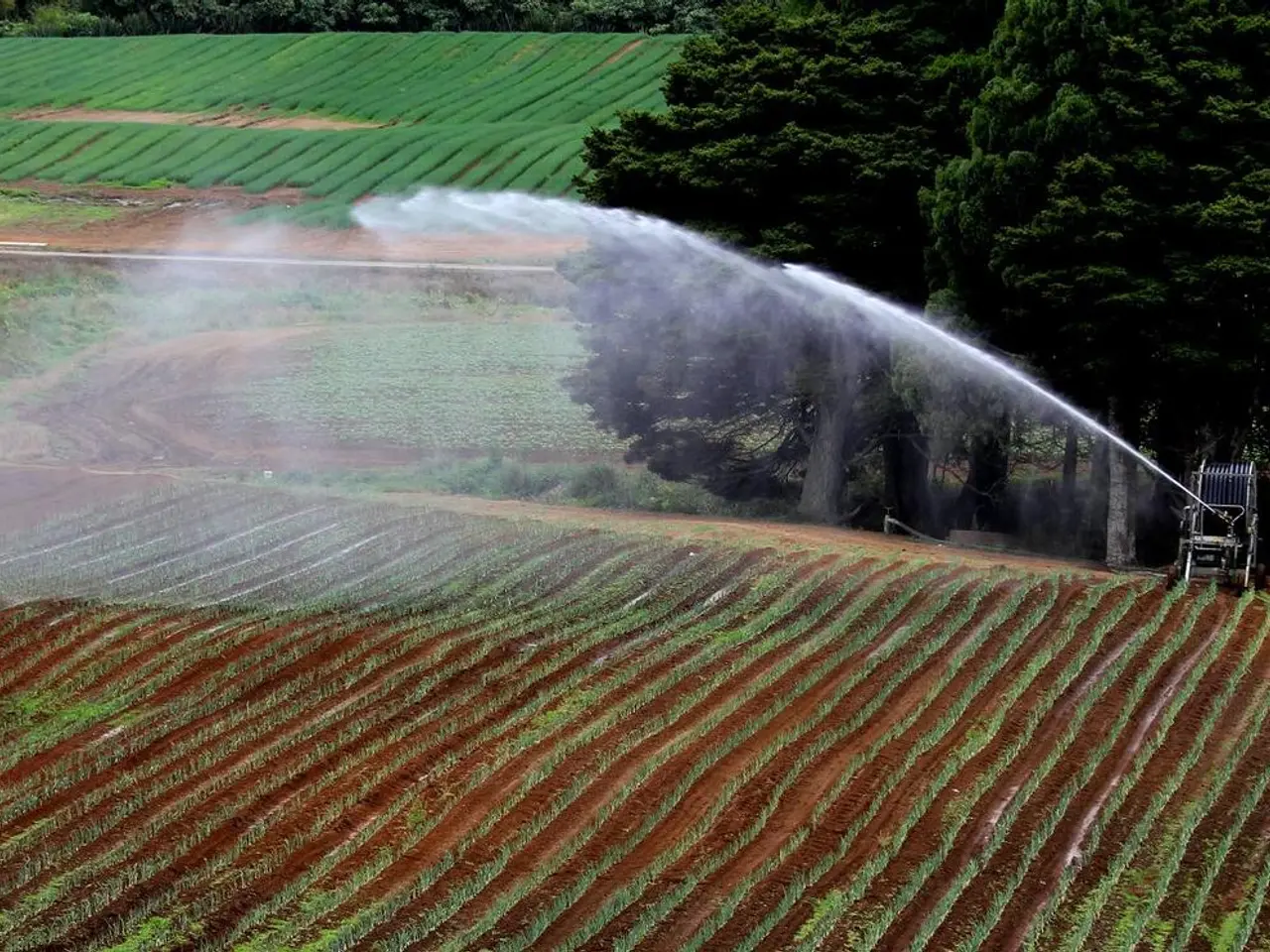Enhanced Solutions for Managing Moisture Levels with Intelligent Sensors
In the modern agricultural landscape, the Internet of Things (IoT) is playing a significant role in revolutionising farming practices. One of the key technologies driving this change is the use of smart soil moisture sensors.
These sensors, connected to the internet, enable users to check moisture levels from their smartphones, providing a level of precision and control previously unimaginable. But it's not just about convenience; these sensors are pivotal in promoting efficient water usage and improving crop yields.
Efficient Water Usage
The precision offered by these sensors allows for tailored irrigation schedules, reducing both water waste and over-irrigation. By detecting exact moisture levels at various depths, farmers can implement precise irrigation strategies that match the specific needs of their crops. Real-time monitoring of soil moisture levels allows for immediate adjustments to irrigation systems, ensuring crops receive the right amount of water at the right time. Advanced systems even use sensor data, weather forecasts, and AI to automatically determine optimal irrigation times and amounts.
Improved Crop Yields
By maintaining optimal soil moisture levels, smart soil moisture sensors help prevent crop stress due to water deficits or excesses. This leads to healthier and more resilient crops. Early detection of moisture-related issues allows for timely interventions, enhancing crop growth and productivity. Advanced sensors provide detailed insights into soil conditions, empowering farmers to make informed decisions about irrigation, fertilization, and overall farm management.
Additional Benefits
The benefits of smart soil moisture sensors extend beyond water efficiency and improved crop yields. Reduced irrigation costs are achieved through efficient water use. These technologies support sustainable agriculture practices by minimising waste and optimising resource use.
In conclusion, smart soil moisture sensors are transforming agriculture by optimising water usage and improving crop yields through precise monitoring and data-driven decision-making. Managing moisture effectively is crucial for healthier crops and better yields. Factors to consider for effective environmental moisture management include soil texture, weather patterns, crop growth stage, and irrigation timing.
To integrate smart agriculture sensors, assess needs, research available sensors, install them, connect to a data platform, analyse data, and adjust practices as needed. Wireless moisture detection sends data through Wi-Fi or Bluetooth, eliminating messy wires. When selecting a precision irrigation system, consider water source, crop type, soil type, budget, and ensure it fits the farm's needs. Data analysis over time allows for optimization of watering based on trends. Automated alerts are provided by these sensors when soil moisture levels are low. Advanced smart sensors for soil moisture monitoring can be integrated into farming routines, allowing users to make informed decisions about watering their crops based on real-time data from these sensors. These sensors promote efficient water usage by allowing users to water only when necessary and help in conserving water while growing plants. Advanced smart sensors for soil moisture monitoring also help in improving crop yields by providing accurate information about soil moisture levels. Updates on soil moisture levels can be received on smartphones or computers with wireless moisture detection, making it easier than ever for farmers to stay connected to their crops.
- In the realm of environmental science, the integration of smart soil moisture sensors into agricultural practices is inspired by the principles of climate-change mitigation.
- The advancements in technology, including smart-home devices and gadgets, have facilitated the deployment of these sensors in the modern farming industry, encouraging sustainable and efficient agriculture.
- Aside from promoting water efficiency and enhancing crop yields, smart soil moisture sensors contribute to the financial aspect, by managing irrigation costs and encouraging more profitable outcomes.
- By harnessing the power of finance, these sensors can be harnessed further, funding technology-driven advances in the field of environmental science, with the goal of safeguarding and improving our planet's climate.




